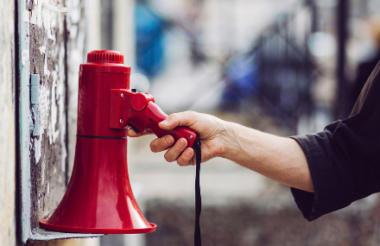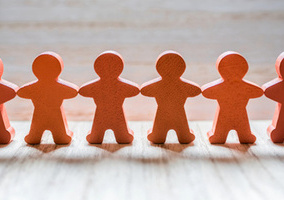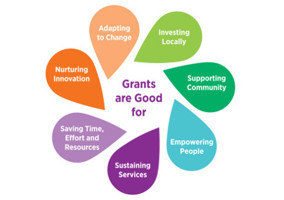Sometime in the 1990s my father and I had dinner in an Islington restaurant. Over the course of a boozy evening, we hand-scribbled a picture of “an economy” on the disposable paper tablecloth in front of us.
It was an asymmetric version of Damien Hurst’s spots, with a myriad of lines, curves and arrows joining the dots multiple times over. It had cartoons and stick people and pound signs and “presents” (to signify gifts) accompanying each arrow.
It included taxes, benefits and wages, pocket money, loans and donations. It included parents, carers and babysitters looking after children, plumbers keeping our pipes working, teachers nurturing the knowledge and ambitions of our newest citizens, engineers building bridges and roads, carers making life worth living, hairdressers making us feel good about ourselves, doctors and nurses saving our lives, chefs making us special treats, charity volunteers raising money, farmers growing the essential stuff of life, actors and filmmakers offering fantasy and escapism, bricklayers and chippies building new houses and fixing broken ones, bus and train drivers getting people from A to B. People doing what they do, which in turn made them, their families and the whole economy, work.
It was, in vino veritas, an earnest creative attempt on our part to paint a very different picture from the dull, stultifying two-dimensional neoliberal metaphor of “an economy” as a household budget, in which our national income is generated purely by companies and commerce, while everything else in society is an “outgoing” cost to be carefully controlled by anyone who claimed to be financially responsible. This neoliberal lie was a big enough problem back then for us to want to graffiti our tablecloth. Now it’s life-critical for our whole nation.
Inflation is like a plague of locusts
Sadly, economists and politicians who still hold that view of the world won’t register the loss of Children England, the 81-year-old charity that I’ve been proud to run for the last decade, and which I now have to close.
The pathway that led to this eventual closure is a long one, rather than being the fault of any sudden or singular decision. After 72 years of being funded by governments of all political persuasions, government funding of Children England stopped in 2013, and since then we have committed to surviving purely through charitable funding sources.
When we made that change, the charity’s reserves would have given it no more than 18 months left to run. It is through the generosity and support of members, charitable funders and donors that we survived so much longer on those reserves. But that strategy couldn’t last forever, and the sudden inflation crisis of the last 18 months was the final nail in the coffin of making our charitable funding stretch as far as it could.
The household budget brigade places no worth on organisations that make no profit; they see no material value in the gift economy.
But they should. Gift is woven into the fabric of society. So is our total interdependence upon each other. Any form of economics that fails to recognise those fundamental human facts is not a serious human science. The very idea that spending on people, charities or public services is somehow an optional extra to the basic functioning of our economy is inhuman. Unreal.
Our unreal national discourse about inflation gets reported as if it will all be over once the rate comes down again. But inflation is like a plague of locusts eating through everything in its path – public, private and charitable.
Every pound my charity has in income and reserve is worth less than 90% of what it was worth this time last year. Meanwhile, every bill has gone up. For everyone doing what they do in this economy there is no obvious way of making that giant loss in the value of money add back up again. Children England certainly can’t. Our greater concern is how many more great organisations won’t make it either.
Every cut has been a political choice
Seeing the government claim it had to pay off the bill for bailing out the banking crisis at the expense of services and benefits for children, young people and families has been alarming. Mainly because it was never true. Every cut to councils, every Whitehall spending decision, has been a political choice, not an economic necessity. Throughout the decade, Children England has offered systemic solutions and policy reforms that could stem the impact of austerity on children. But governments and politicians still aren’t listening.
Our banks are making record profits once more, while children still pay the price of austerity. Both main political parties say “the money has run out”. But it hasn’t run out, it’s running off – siphoned away and hoarded by people so wealthy already they have no personal need or economically productive use for it at all. They’ve taken it offshore and out of circulation. Off the tablecloth.
In their inspiring work launched this May, young leaders of the ChildFair State have been our great source of hope, laying out a positive and practical agenda for restoring the collective responsibility we should all have towards every child in this society. No child is unaffordable, the very idea is perverse.
As we close our charity, we hope their powerful ideas can spread far and wide, like sycamore seeds on the autumn wind, coming to life in reality long after Children England is gone. I see their seeds of hope and immense productivity in every dot and arrow of my economic tablecloth.
Related articles












